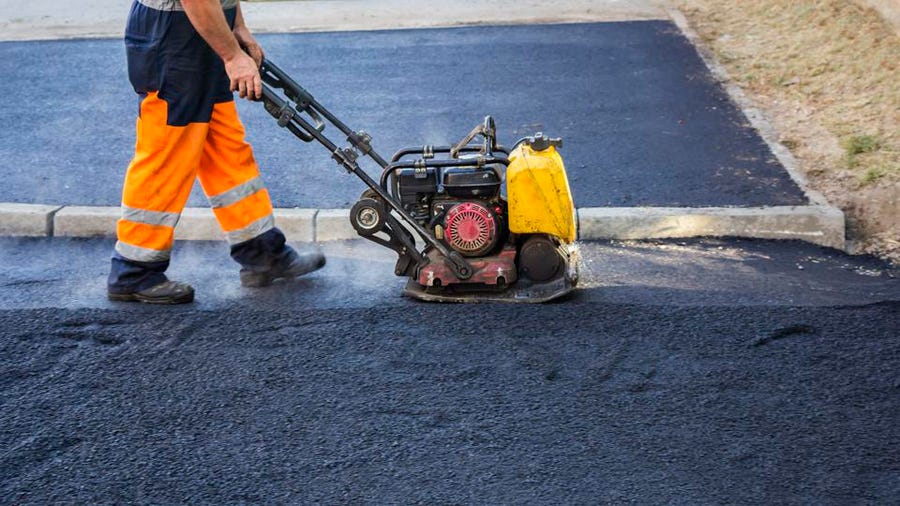As sustainability becomes a priority for homeowners, many are looking for eco-friendly alternatives in home improvement projects, including driveway paving. Traditional paving materials like asphalt and concrete contribute to environmental issues such as heat absorption, water runoff, and resource depletion. Fortunately, there are several sustainable driveway paving options that not only reduce environmental impact but also enhance the aesthetic appeal and durability of your driveway.
When considering professional Driveway Paving Services, it is essential to explore environmentally friendly materials that promote sustainability. Choosing green paving solutions can help conserve natural resources, improve water drainage, and reduce your carbon footprint.
Benefits of Eco-Friendly Driveway Paving
Opting for sustainable driveway materials offers several advantages beyond environmental benefits. Some key benefits include:
- Reduced Water Runoff – Permeable materials allow rainwater to seep into the ground rather than contribute to surface runoff, reducing erosion and preventing water pollution.
- Lower Heat Absorption – Lighter-colored and porous materials absorb less heat, reducing the urban heat island effect and keeping driveways cooler.
- Durability and Longevity – Many eco-friendly paving options are designed to be durable and require less maintenance over time.
- Recyclability – Using recycled materials minimizes waste and conserves resources.
Eco-Friendly Driveway Paving Options
1. Permeable Pavers
Permeable pavers are an excellent choice for sustainable driveways. They are designed to allow water to flow through gaps between the pavers, reducing runoff and promoting natural groundwater replenishment.
- Materials – These pavers are typically made from concrete, brick, or natural stone.
- Benefits – They prevent flooding, reduce soil erosion, and require minimal maintenance.
- Considerations – Proper installation is necessary to ensure efficient water drainage.
2. Recycled Asphalt and Concrete
Reusing asphalt and concrete from old roads and structures is an eco-friendly alternative to traditional paving. Recycled materials help reduce landfill waste and conserve raw materials.
- Benefits – Recycled asphalt and concrete are cost-effective, durable, and environmentally responsible.
- Considerations – The quality of recycled materials can vary, so choosing a reputable supplier is important.
3. Gravel Driveways
Gravel is one of the most natural and cost-effective driveway paving options. It is highly permeable, allowing rainwater to pass through and reducing water runoff.
- Benefits – Gravel is inexpensive, easy to install, and provides excellent drainage.
- Considerations – It requires regular maintenance to prevent shifting and displacement.
4. Grass Pavers (Turfstone)
Grass pavers, also known as Turfstone, are grid-like concrete or plastic pavers filled with grass or gravel. These pavers provide stability while allowing greenery to grow through the gaps, blending nature with functionality.
- Benefits – They improve drainage, reduce heat absorption, and add a natural aesthetic.
- Considerations – Regular mowing and maintenance are required to keep grass pavers looking neat.
5. Crushed Shell Driveways
Crushed shells, such as oyster shells, are a unique and sustainable alternative for driveways, commonly used in coastal areas. They break down over time, replenishing the surface naturally.
- Benefits – Shells reflect sunlight, keeping the driveway cool, and are fully biodegradable.
- Considerations – They may not be suitable for high-traffic areas and require periodic replenishment.
6. Recycled Rubber Paving
Recycled rubber from old tires is increasingly being used for paving driveways. This option provides a flexible, slip-resistant surface that can withstand various weather conditions.
- Benefits – Rubber paving reduces waste, absorbs shock, and minimizes cracking.
- Considerations – It may not offer the same aesthetic appeal as stone or concrete options.
7. Cobblestone and Natural Stone
Cobblestone and natural stone driveways are long-lasting and eco-friendly choices due to their durability and minimal processing requirements. They are sourced from natural materials and can be reused or repurposed.
- Benefits – They provide a timeless and elegant look, require minimal maintenance, and can last for decades.
- Considerations – Installation can be labor-intensive and costly compared to other options.
Tips for Choosing the Best Eco-Friendly Driveway Material
Selecting the right sustainable driveway material depends on several factors, including climate, budget, and personal preferences. Consider these tips:
- Assess Water Drainage Needs – If you live in an area prone to heavy rainfall, opt for a permeable material that allows water to drain effectively.
- Consider Long-Term Maintenance – Some materials, like gravel and grass pavers, require more upkeep than others. Choose an option that aligns with your maintenance capabilities.
- Prioritize Locally Sourced Materials – Using materials sourced from nearby locations reduces transportation emissions and supports local suppliers.
- Factor in Durability – Investing in a long-lasting driveway material minimizes the need for frequent replacements, reducing environmental impact over time.
Conclusion
Eco-friendly driveway paving options provide a sustainable and visually appealing alternative to traditional materials. Whether you choose permeable pavers, recycled asphalt, gravel, or grass pavers, making an environmentally conscious decision helps reduce waste, improve water management, and contribute to a greener home. By selecting the right sustainable driveway material, homeowners can enhance curb appeal while minimizing their carbon footprint.

